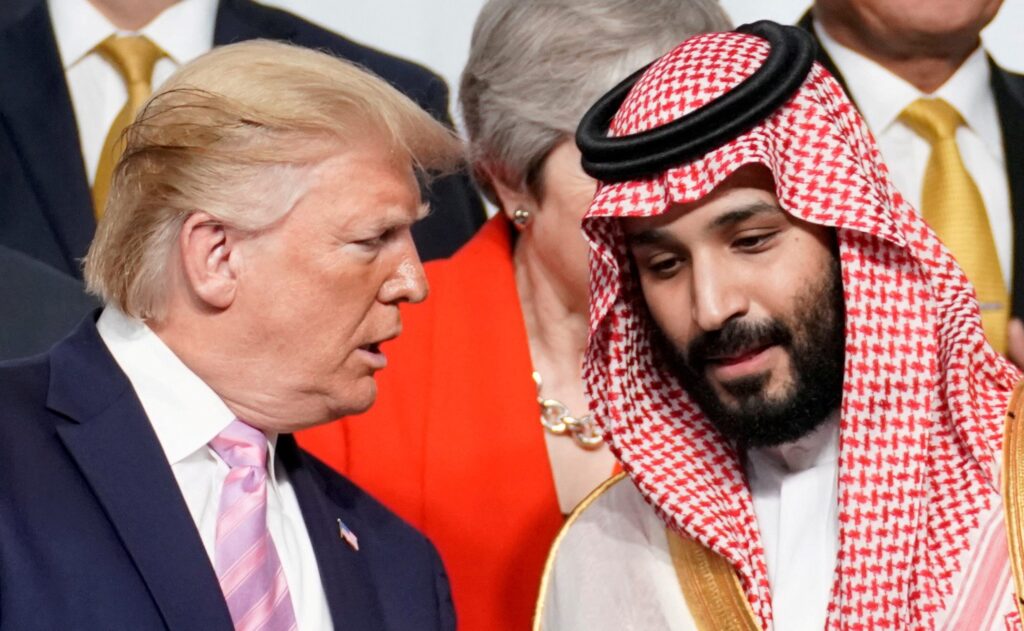Gulf keen to invest in tech
Seeking streamlined process
US President Donald Trump arrives in the Saudi capital Riyadh tomorrow on the first leg of his three-country Gulf visit that will also take in Qatar and the UAE.
His overwhelming objective is money and big deals: to sell American goods and secure their investment to the US economy.
With that in mind, the US announced last week that it would start a pilot programme to facilitate international investment, notably in more sensitive national security or highly competitive industries.
As always, however, the devil is in the detail.
Just how effective the proposed reforms to existing regulations will be in speeding up approvals of foreign direct investment into US industries, such as artificial intelligence, depends on the yet-to-be released implementation details, lawyers and analysts say.
“The Treasury Department pushed this press release without details, likely in anticipation of that trip, to signal serious intent to make the regulatory process for [sovereign wealth funds] in the Gulf easier,” says Nicholas Klein, a partner in Washington at law firm DLA Piper.
His work focuses on national security, global trade and the Treasury Department-led Committee on Foreign Investment in the United States (CFIUS).
“But we still don’t know exactly how CFIUS will implement it or how much practical benefit it will provide.”
The May 8 press release from the Treasury Department simply states that officials will set up a “fast track process” to invite new investment “from ally and partner sources,” and that the effort will begin with a pilot scheme.
In a speech last month, deputy treasury secretary Michael Faulkender said work on the scheme is in the “early stages” and that part of the effort is focused on streamlining disclosures for “repeat filers”.
The programme is now slated to encompass a new “known investor” portal for international entities to submit their information to CFIUS ahead of disclosing any deals in the US that might have national security implications.
The Treasury has not specified any specific country or geography that may be eligible for fast-tracking.
But, as Trump visits the Gulf as his first state visit since becoming president, analysts say the largest Arab economies are top of mind.
Riyadh and Abu Dhabi have already pledged to inject in trade and investment a combined $2 trillion in the US economy over the next four to 10 years through sovereign investors such as the Public Investment Fund and Mubadala.
According to Mohammed Soliman at Washington-based advocacy consultants McLarty Associates, these countries want to buy into industries from semiconductors and AI to space and defence technologies.
“While the language in the announcement is geographically neutral, it’s hard to ignore what’s between the lines,” Soliman says.
“Gulf capitals have been asking for streamlined, bespoke investment pathways – not to be lumped into a bureaucratic tier system designed for higher-risk jurisdictions.”
CFIUS has long had the power to refer foreign investments that it deems counter to US national security to the president for a veto.
After some delays the committee cleared Abu Dhabi G42’s investments into California-based AI company Cerebras Systems a couple of weeks after a high-level UAE delegation visited Washington.
Since at least October 2023 investors from the GCC have also faced Commerce Department restrictions on accessing the latest in American microchips as geostrategic competition between the US and China heats up.
The restrictions now flow into a Framework for Artificial Intelligence Diffusion that the former administration of President Joe Biden passed in its final days.
Last week the Trump administration formally moved to revoke that regime, though it has yet to clarify what rules will ultimately take its place.
Speaking of the Gulf states’ desire for streamlined investment pathways, Soliman says: “The White House knows [all] this; Treasury knows this and now, ahead of the President’s trip, we’re seeing action.”



